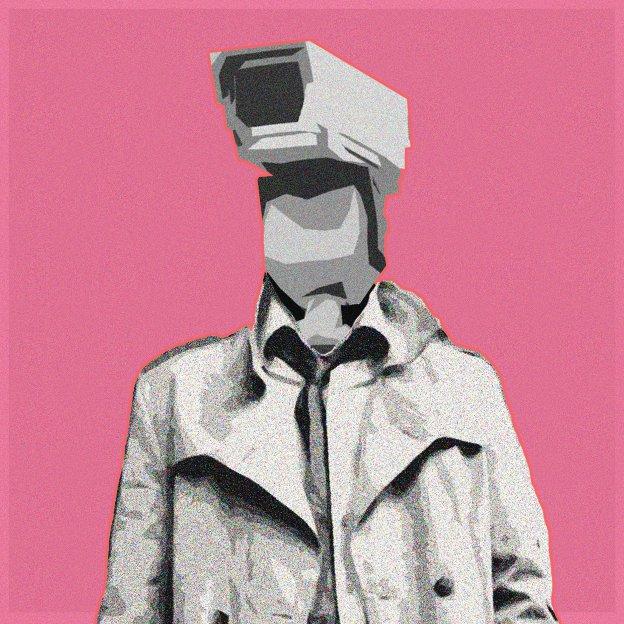With the mechanically open charm of the Lecoq performance style Rhum and Clay present a space of illusive freedom and hegemonic control. Three men in gas masks and trench coats guide, affect and respond to the world of the central character Lublin, a ministry clerk of no import, deftly played with an anxious energy by Christopher Harrisson. He is the Everyman: a patriot and decent citizen who tries on a daily basis to be the best tiniest cog in the grand scheme that he can be. In much the same way as Disney’s Goofy shorts of the Forties and Fifties there is a comically hapless and desperate desire to improve – to match the ideals of the system and conform.
Shutterland questions: what if one’s life was monitored and watched to the degree that all your actions and choices were imposed and devoid of free will? Today, at his tiny workstation in the damp basement of the ministry, Lublin receives a red letter: an error or further manipulation from an unseen source has brought this document to him and what follows is a chaotic journey of awareness that unhinges the analogue dystopic system from within.
This Everyman persona neatly fits with the Lecoq philosophy of le jeu (playfulness), complicité (togetherness) and disponsibilité (openness), giving the troupe free reign to gleefully play with the life of Lublin. Each gasmasked ‘storyteller’ acts as both manipulator and resonator to him, stepping into the guise of the various characters that inhabit his world – such as the bureaucratic ministry officials who appear in an expertly timed sequence that sees the MacGuffin red letter magically flit around the space, seemingly out of control, appearing anew in each official’s hand with split second precision. At other times they reaffirm his existence as familiars or projections of a split Self. Indeed in a moment of climactic self-realisation for Lublin they present a divided truth; engaging fully with the world’s analogue ideals, presenting their three bodies as a distortedly broken paused image of one man’s life in an excitingly refreshing way.
There are numerous references to our European cold war past and there is a distinct Orwellian feel to the proceedings, but appropriately the location of our setting is never fully realised. Shuttlerland offers thrilling economic theatrical simplicity as bare-bones-staging importantly allows the affected human figure to become the priority at play in this world. What props are used are manipulated in such an exciting manner that to describe them would ruin their charm and the crescendo to Lublin’s journey is without doubt beautiful in its construction. This is a brilliant Absurdist satire that in all but a minor detail of a mis-timed falling sequence was perfect and a great way to start breathing new life into socially relevant theatre for 2012. If ever there was a time for a new wave of Absurdism now is it, lets hope Rhum and Clay forge a way.


